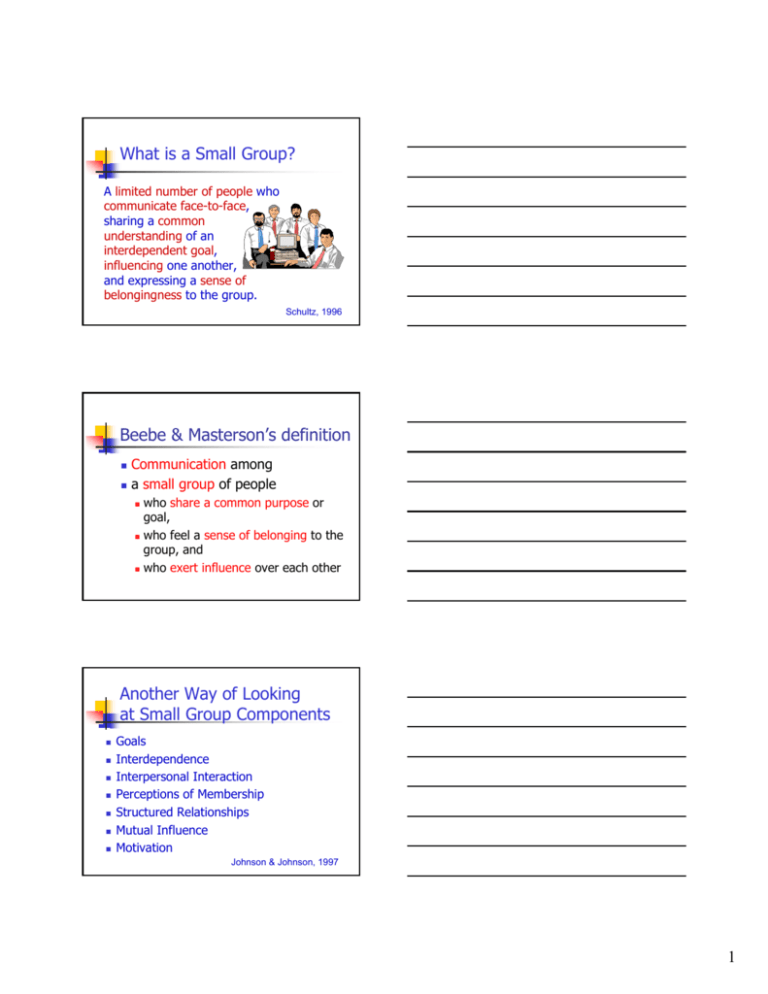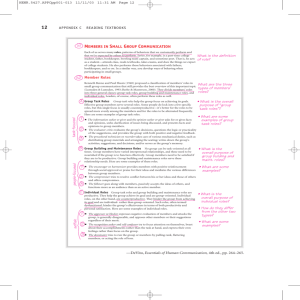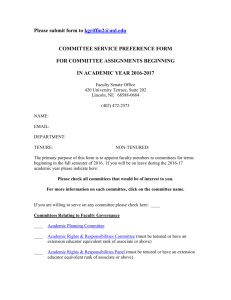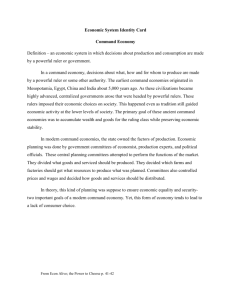What is a Small Group? Beebe & Masterson's definition Another
advertisement

What is a Small Group? A limited number of people who communicate face-to-face, sharing a common understanding of an interdependent goal, influencing one another, and expressing a sense of belongingness to the group. Schultz, 1996 Beebe & Masterson’s definition Communication among a small group of people who share a common purpose or goal, who feel a sense of belonging to the group, and who exert influence over each other Another Way of Looking at Small Group Components Goals Interdependence Interpersonal Interaction Perceptions of Membership Structured Relationships Mutual Influence Motivation Johnson & Johnson, 1997 1 What is Not a Small Group? It is not an aggregate of individuals Aggregate: a collection of individuals who are present at the same time and place but do not form a unit or have a common degree of similarity. Small Groups vs. Teams Team is a small group, but … More definition, discussion (and acceptance): Goals (drive all aspects of team accomplishment) Roles/Responsibilities Rules/expectations Collaboration and coordination, work together interdependently Classification of Groups Groups are classified based upon: The reason they were formed (Why was the group first created?) The human needs they serve (Why do people join the group?) 2 William Schutz’s Theory of Interpersonal Needs Inclusion - a need to belong and be identified with others Affection - a need for love and esteem from others Control - a need to achieve and exert power over others and our environment We are willing to exchange items of value to meet these needs Schutz, 1958 Two Major Classifications of Small Groups Primary Groups - groups that exist chiefly to satisfy human needs for inclusion and affection Secondary Groups - groups that are formed for the purpose of doing work (fulfilling task needs) Main Types of Secondary Groups Activity Groups – to participate in an activity Personal Growth Groups – to develop personal insights, overcome personality problems, & to grow as individuals from the feedback of others Learning Groups - to understand a subject more thoroughly Problem-Solving Groups - to address some condition or problem Decision-Making Groups –to make a choice among several alternatives. 3 Types of Problem-Solving Groups & Teams Governance groups & committees Ad hoc committees/special committees/ task forces Standing committees Staff groups Management teams continued…. Lumsden & Lumsden, 1997 Types of Groups & Teams (continued) Self-managing teams/self-managed work groups Quality circles Project teams/Creative teams Health care teams Focus groups Lumsden & Lumsden, 1997 When do groups perform better than individuals? Task requires a wide range & variety of information & skills Pooling information Group remembering Neither group nor individual have expertise Task is especially complicated & complex Group is reasonably bright (sometimes) better than 4 When do individuals perform better than groups? Group is composed of uninformed laypersons vs. an expert Groups establish norms of mediocrity Groups become too large Simple task Time is a critical factor better than 5






